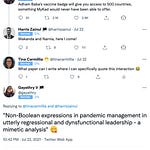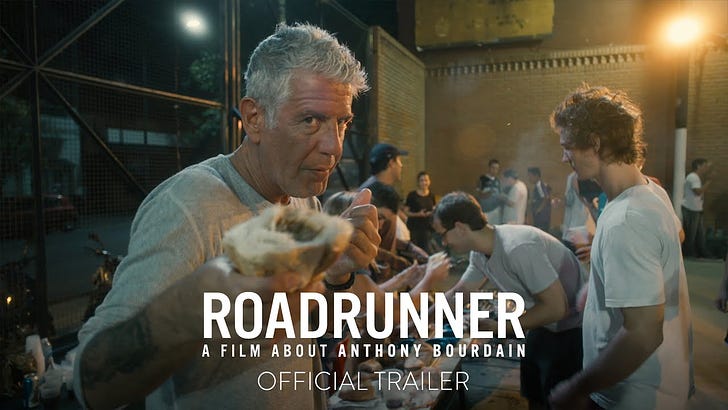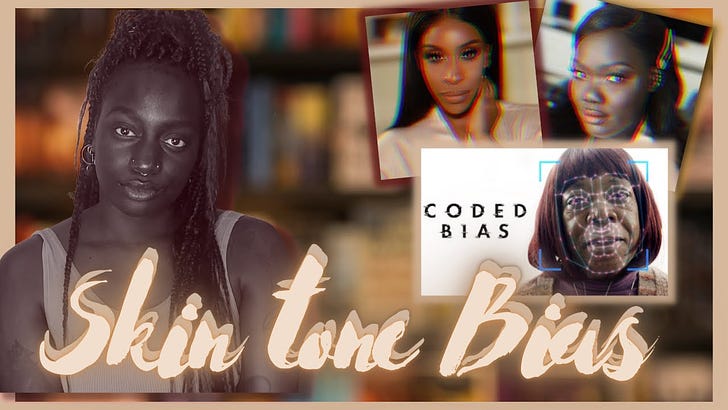Who watches the watchers?
Raphael Satter for Reuters: Mass surveillance exposed by Snowden was illegal.
Adi Robertson for The Verge: FBI worried doorbell cameras could tip owners off.
Emma Copley Eisenberg for Esquire: Fact-checking is the core of nonfiction writing. Why do so many publishers refuse to do it?
Linkedin deserves the same scrutiny as other social platforms
My annual LinkedIn Premium account is due for renewal this month. There isn’t a lot of benefits to a premium account, and the only functions I truly have used are sending InMails to potential interview subjects and looking at profiles anonymously.
I’ve had far greater success at getting interviews via Twitter and Instagram than LinkedIn. The premium account isn’t worth it.
First, let’s look at the more pointless, petty problems of LinkedIn: The UI design. It’s stuck in the noughties. Second, it’s an insufferable cringefest. Posts are marketing and self-branding tools filled with gimmicky, tone-deaf, pseudo-motivational positivity porn with recycled pixelated images my aunts used to forward in chain emails 20 years ago because they didn’t want seven years of bad luck.
“It’s the rise of the faux-inspirational narrative, where professionals, completely unprompted, jot down little workplace vignettes meant to make other LinkedIn users think, gasp or perhaps back away from their screen muttering ‘Whoa, dude’ under their breath,” wrote Tanner Garrity. “It follows the usual template: short, declarative sentences meant to convey some vague but momentous lesson, stamped with a hashtag… These posts are intended to spread messages of goodwill and positivity. They’re the bastard children of self-help culture and HR jargon.”
Why is there so much focus on toxic optimism and why do people keep cheering and patting each other on the back for their pretentious humblebrags? Am I such a cynic that I don’t think any of them are genuine? I’m definitely not the only one; there are Twitter accounts dedicated to this: The State of Linkedin and Crap on Linkedin.
But LinkedIn is more problematic than that. False, misleading and harmful contents are shared on this platform. Let’s look at a real-life example. This is a screenshot from my frontpage feed in November 2019. “Healthcare keeps getting more exciting,” went the caption, accompanied by a link to an article with the headline: “Google is now a pharmaceutical company.”
Let’s take a closer look at the link that was shared. I have a nose trained to detect B.S. from a mile away and I knew it was a dubious website immediately. But I needed evidence. I clicked on the link to read its opening lines, which included the quote: “Google today is not only a weapon for promoting the pharmaceutical agenda [emphasis mine] but now also a drug company itself .”
“A weapon for promoting the pharmaceutical agenda?” Why did the regional head of communications of a legacy pharmaceutical company share a link to an article that is critical of their own industry?
A closer inspection of the website reveals that it is an anti-vaccination website that spreads other health-related conspiracy theories including ones related to chemtrails and GMOs. I rephrase: Why did the regional head of communications of a legacy pharmaceutical company share a link from a website that promotes pseudoscientific quackery?
What I read, watch and listen to…
I’m reading CrimethInc’s step-by-step guide to protecting yourself against doxxing and what to do if you are targeted.
I’m watching the couple behind the popular Youtube channel, Simply Nailogical, discuss how influencers make money. (They still keep their day jobs as crime statistics analysts at Statistics Canada despite making millions on Youtube.)
I’m listening to Science Friction by Natasha Mitchell for ABC on medical misinformation, COVID-19, Big Data and BLM.
Chart of the week
The latest S&S newsletter by data journalists Sara Cooper and Sabrina Faramarzi shares how to embrace uncertainty. Using polls carried out by Ipsos about what people predicted for 2020, they explain in great detail the unpredictability of the future and suggest some ways we can still make better decisions.
Fakta, Auta & Data #7: Pemanasan sosial
Bekas penyunting teknologi di The Guardian Charles Arthur menyamakan ancaman maklumat palsu yang berlaku secara ansuran dengan pemanasan global. Dia menamakan proses ini pemanasan sosial.
Dengan peningkatan penggunaan telefon pintar, rangkaian sosial dan masyarakat yang terhubung sepanjang masa, apa yang boleh kita perhatikan adalah sama seperti pemanasan global. Sebagaimana enjin pembakaran dalam dan syarikat-syarikat penjana kuasa besar yang membakar bahan api fosil telah menyebabkan pemanasan atmosfera, dengan telefon pintar dan rangkaian sosial, kita sedang melihat ‘pemanasan masyarakat’ – pemanasan sosial.
Sepertimana kita mengubah atmosfera dengan memasukkan lebih banyak karbon dioksida ke dalamnya, kita juga mengubah cara masyarakat berfungsi dengan memasukkan lebih banyak maklumat ke dalamnya, membuatkan orang bertindak balas dengan lebih cepat, dan ia secara radikal mengubah cara masyarakat berfungsi.















